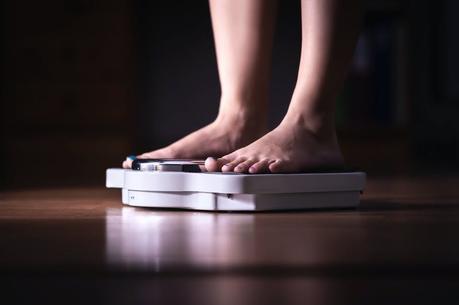
Nutrition researcher Kevin Hall, PhD submitted a new study for publication that some scientists believe disproves the "carbohydrate-insulin model" of obesity. But the study doesn't truly support that conclusion.
First, I need a disclaimer. This study hasn't been published yet. In fact, it hasn't even been accepted for publication yet.
Normally I wouldn't write about an unpublished study as many things can change during the peer review process. However, given the stature of Hall and the wave of interest on social media with confusing conclusions, I felt this one deserved immediate attention, despite not having gone through peer review yet.
I have several issues with this study, but the biggest is the misperception that it "proves" the carbohydrate-insulin model of weight gain is false. The study does nothing of the sort.
Dr. Hall and colleagues recruited 20 young (average age 29) individuals without diabetes to live in a metabolic ward for four weeks. For two weeks they ate either a plant-based, low-fat diet consisting roughly of 10% fat, 75% carbs and 15% protein, or an animal-based, low-carb diet of 10% carbs, 76% fat and 14% protein. After two weeks they switched over to the other diet.
The study provided twice as much food as subjects "should" eat, based on their resting energy requirements, and allowed the subjects to choose how much to eat and when to stop. Researchers provided three meals per day, plus continuously available snacks.
The study showed that the subjects ate significantly fewer calories on the low-fat diet than the low-carb diet. Based on that main conclusion, the authors concluded that we don't gain weight because of carbs and insulin.
I am not sure those are related, however. Let me explain.
First of all, the low-carb group lost more weight despite eating more calories. Wouldn't that suggest insulin IS important for weight loss?
Eating more calories while losing more weight certainly suggests the number of calories wasn't the determining factor for weight gain. So what was? Insulin is a very strong contender. Granted, much of the initial weight loss was water weight, which highlights an even bigger problem with the study.
Two weeks is woefully inadequate to measure the effect of a low-carb diet. I was fortunate enough to interview Dr. David Ludwig, a Harvard University obesity researcher, about this study, and he reminded me of an article he wrote in 2017 detailing how the science shows that we likely need four weeks to adapt to low-carb diets, and possibly even longer. Dr. Ludwig also agrees that the primary outcome of this new study has nothing to do with proving or disproving the importance of insulin on long-term weight gain or loss.
In fact, the current study's results confirm that a two-week study is inadequate to show any meaningful conclusions. In what way? Well, those eating a low-carb diet reduced their caloric intake by 312 calories after the first week. Would calorie consumption have continued to decrease over time? We won't know because the trial was too short to show us possibly the most important data - what happens to these dieters over time.
What are some potential reasons why the low-fat dieters ate less in the beginning? For one, they had 60 grams of fiber compared to only 20 grams in the low-carb group. Fiber is known to be particularly satiating.
Another potential reason is that the low-carb diet sourced just 14% of its calories from protein. There is debate in the low-carb community about the satiating effects of fat versus protein, but the science seems fairly clear that protein has a greater satiating effect. That is why at Diet Doctor, most of our low-carb and keto recipes contain at least 20% of calories from protein.
Also lost in the fine print is the fact that the low-fat snacks were comprised of 15% protein whereas the low-carb snacks had only 9%. Why the difference?
Significantly, the subjects had much better glucose numbers on the low-carb diet, and they had greater resting energy expenditure, burning an extra 166 kcal per day.
To me, these data suggest that a longer study could have shown greater weight loss from the low-carb group. If the subjects' resting energy expenditure is higher and they continued to decrease their caloric intake as they adapted to the low-carb diet, greater weight loss would almost certainly follow. But again, since the study was so short and thus limited in scope, we won't get to see that data.
The study also brings up the important concept of energy density, and calls into question whether fat, especially liquid fat, is particularly satiating, or if it is just a dense, high-calorie fuel. At Diet Doctor, we believe the most satiating meals are low in carbs, include adequate protein and low-carb veggies, and use fat for flavor and extra calories as needed.
As a closing argument, let me summarize by rephrasing the conclusions of this study a different way:
"Low-carb dieters lose more weight despite eating more calories. In addition, they have greater blood glucose control, their resting energy expenditure is higher, and their caloric intake decreases over time."
Does that sound like a "take down" of the carbohydrate-insulin model of obesity?
Quite the opposite. That sounds like a victory for the importance of carbs, glucose and insulin. Once again, we can see how a reader's viewpoint can affect how they interpret the data.
Thanks for reading,
Bret Scher, MD FACC
Earlier
Bad science is bad science, no matter what the conclusions Obesity as a risk factor for coronavirus complications Are all diets the same for weight loss and cardiac risk?Start your FREE 30-day trial!
Get delicious recipes, amazing meal plans, video courses, health guides, and weight loss advice from doctors, dietitians, and other experts.
Join now

